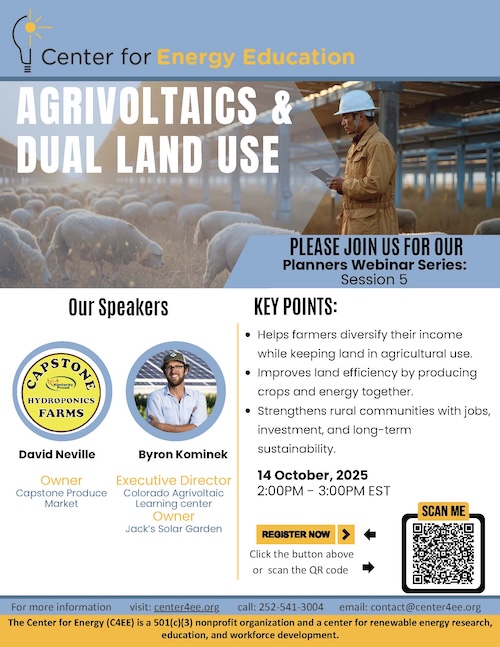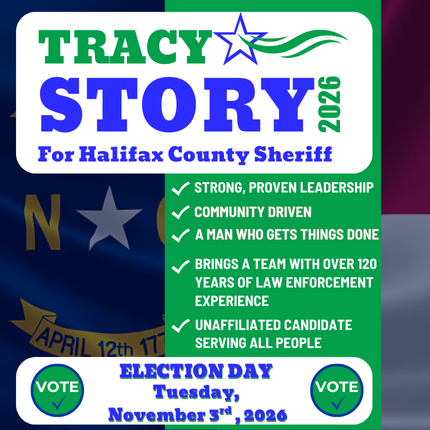Two sustainability advocates who specialize in local food production and land stewardship will lead a free, hourlong virtual presentation to share information about the role of agrivoltaics and vegetation management in the clean energy landscape.
The Center for Energy Education will host a free webinar on sustainable development through agriculture on Tuesday, October 14, from 2 to 3 p.m.
The webinar features David Neville, owner of Capstone Produce Market, and Byron Kominek, executive director of the Colorado Agrivoltaic Learning Center.
The talk will highlight how solar installations and farms, with planning and collaboration, can successfully co-exist and improve economic growth in rural communities.

An organic farmer, environmentalist, cattleman, U.S. veteran and inventor, Neville, who owns the 258-acre Capstone Farm in Henry County, Kentucky, says his three real stewardships in life are to the land, to livestock and to the people.
An agricultural innovator, he employs goats in brush control on his farm and shares his ongoing and growing hydroponics operation using a former tobacco greenhouse to raise multiple lettuce varieties, plus basil, sage and cilantro, which he sells to area county school lunch programs.
Kominek leads an organization that showcases clean energy generation and land stewardship by educating communities to incorporate local food production within solar arrays.
A former U.S. diplomat, a former Peace Corps volunteer and environmental engineer, he provides research analysis and engineered solutions for environmental pollution, resource management and health issues.
Through constructive partnerships, he guides development of environmental and community wellbeing within a single project.
Each speaker will share insights to help farmers diversify their income while keeping land in agricultural use as well as improve land efficiency by producing crops and energy together.
They will also inform participants that agrivoltaics and smart land management strengthen rural communities with jobs, investment and long-term sustainability.
“Agrivoltaics and land management show how energy and agriculture collaborations illustrate community power,” said C4EE Executive Director Mozine Lowe. “Please join us to learn how these professionals are providing proof of the unlimited potential for maximizing economic value for farming on solar farms which ultimately will underscore the economic impacts of renewables as a rural industry.”
The webinar is free and open to the public.
The discussion will include time to ask questions and engage with Neville and Kominek after the presentation.
The link is available on the flyer and events page of C4EE’s website






